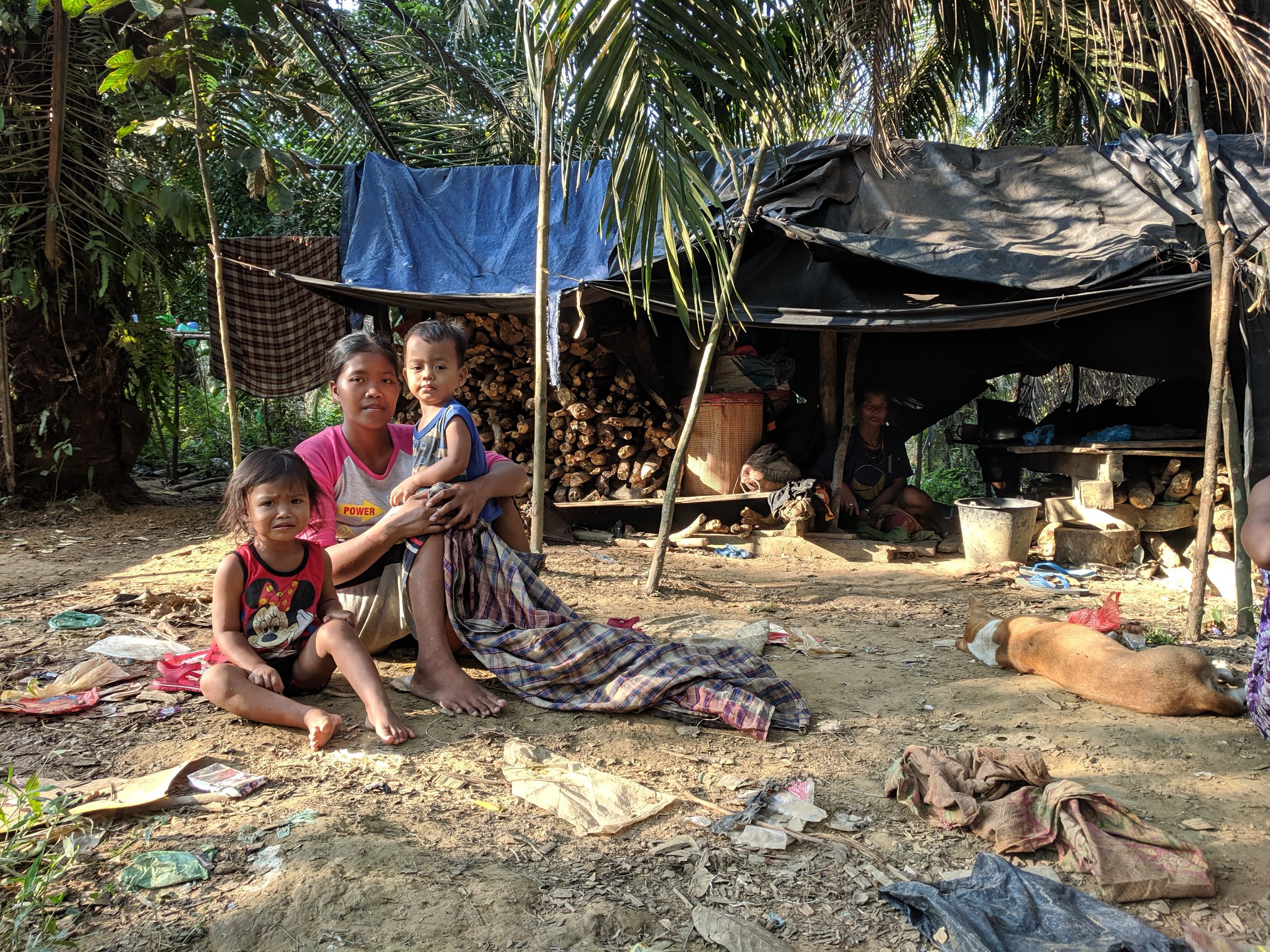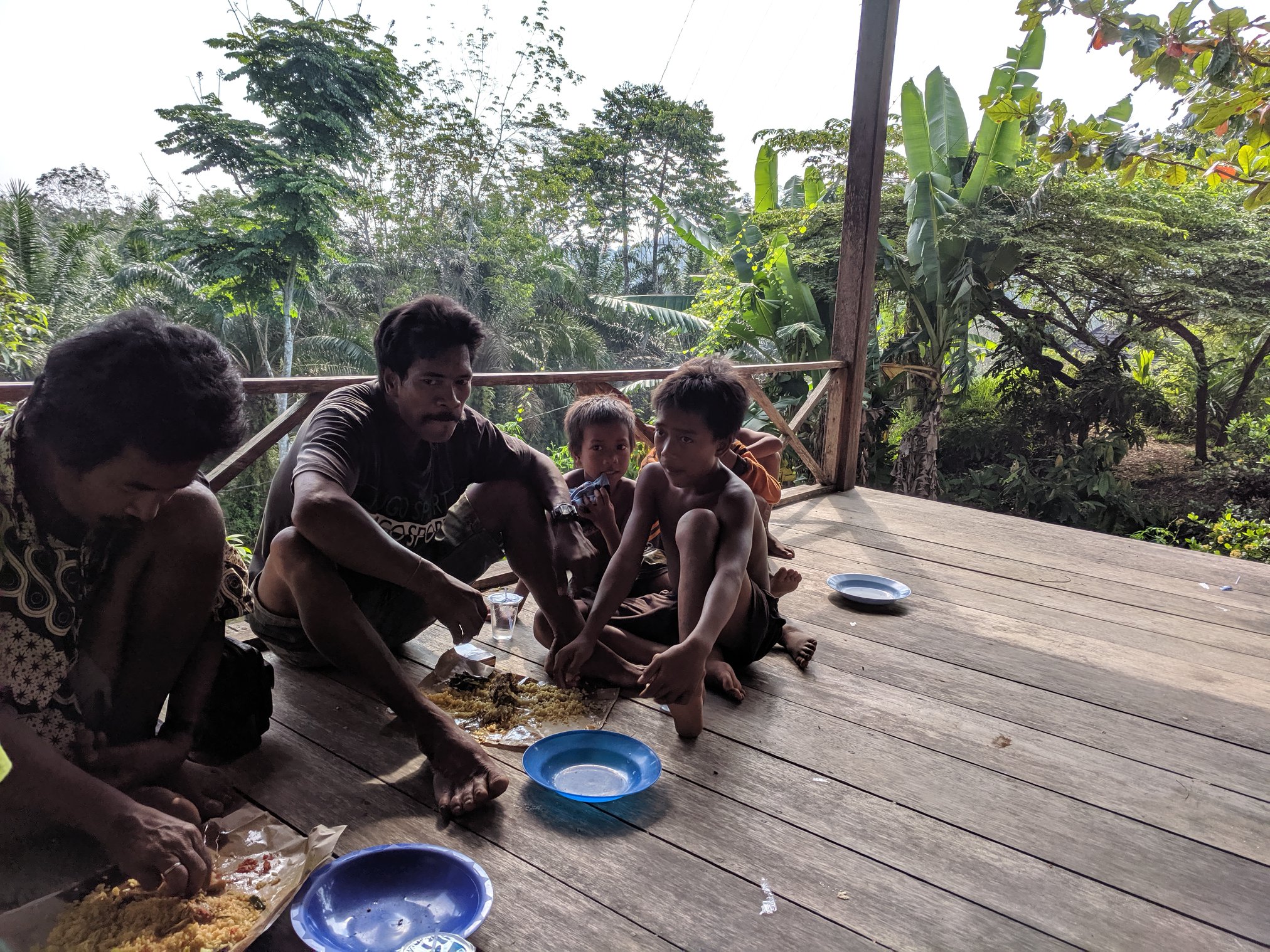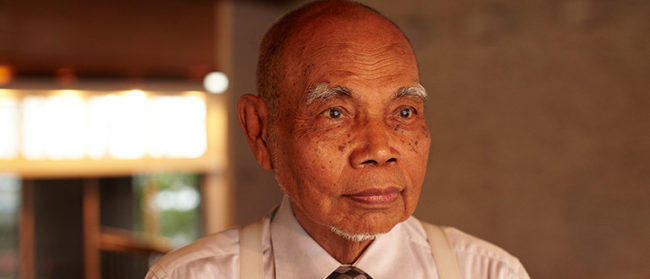Last month, a man in Indonesia’s Jambi province died after a motorcycle accident – it wasn’t the crash that killed him, however. When his vehicle lost balance and he struck the floor, the self-assembled gun he was carrying exploded and mortally wounded his head.
The man, a member of Indonesia’s Suku Anak Dalam (SAD) indigenous group, was on his way to hunt. Historically, when wildlife and forest resources were in abundance for the SAD, the traditional community would hunt with spears. Today, it’s almost impossible to do so – instead they use illegal, and often dangerous, homemade rifles.
Homemade firearms offer just one example of the SAD’s struggles to adapt to modern-day Indonesia, where they are one of the few indigenous groups still living as nomads.
Traditionally, the SAD have made their livelihood through hunting and gathering, rarely settling in one place for long. They do this primarily to avoid their historic enemies, but one of the most well-known traditions of the SAD is melangun, a practice of leaving their current location every time a family member passes away. No less pressing, too, is the need to get closer to food resources.
In modern-day Indonesia, however, the nomadic life has become a challenge, and with massive economic development, the places they once roamed as a way of life have changed dramatically.
There are at least 3,000 SAD people living in Jambi province, some 1,000km north of Jakarta on the island of Sumatra. While there are no clear records detailing their origins, many believe they are the descendents of West Sumatrans who migrated 600km to their current location over generations.
The SAD have struggled to adapt to the shifting reality around them, witnessing Jambi province’s transition from 60% of natural forest cover in 2000, to the domination today of monoculture plantations harvesting palm oil, wood fiber, and rubber. At the same time, the government has struggled to find the right approach to support the group without imposing upon their traditional lifestyle.
We’ve seen cases where the SAD’s tents and motorcycles are torn down and burnt. They are considered as trouble by the company and local community
For years, the SAD community have been at the whim of Indonesia’s economic development, shunted by the ever-changing country around them and pushed around by companies looking to develop the land on which they roam.
“We’ve seen cases where the SAD’s tents and motorcycles are torn down and burnt. They are considered trouble by companies and the local community,” said Ade Candra, an activist with Jambi-based community conservation group Warsi.
She added that areas traditionally inhabited by the SAD have been converted either to plantations or transmigration villages – communities built by the government to relocate people from Indonesia’s densely populated areas to less-populated ones.
In 2016, 600 SAD people were forcibly evicted from the forest to make way for a rubber plantation development, with the land conflict finally settled when the rubber company agreed to allocate 114 hectares out of its concession for the SAD people. A year before that, dozens of SAD people in Jambi were reported to have died due to health complications caused by food scarcity – a symptom of forests around them, traditionally the source of sustenance for their communities, making way for plantations.
Besides a lack of access to basic necessities such as food, there are also cases where SAD communities are unable to make use of government services such as health insurance and education because they lack national identity cards.
Warsi is just one group that has contributed to efforts to address the difficulties faced by the SAD groups. One of those moves was to establish Bukit Dua Belas National Park as a safe place for SAD communities, with around 1,700 people currently living there, able to maintain their traditions of melangun and tenggiris (tree rituals using tree bark to bless and name newborns).
Currently, however, these rituals remain off limits to many SAD groups who have already lost the forest, now forced to live inside plantations and or on the outskirts of villages and highways.

According to Srimarta Puriana, head of social rehabilitation and empowerment for the Social Services Department in Jambi’s Batanghari district, where most of the SAD population live, the group are increasingly reliant on social support to survive.
Among the government programmes aiming to improve SAD welfare are the provision of housing facilities and basic food to families every six weeks. Other government agencies have also initiated programmes to complement this process, with the Batanghari Prosecutor’s Office also conducting a programme called Jaksa Masuk Rimba (Prosecutors Go to the Jungle). Vanda Satriadi Pradipta, a former Batanghari Prosecutor currently working at the Attorney General’s Office, explained the purpose of the programme is to educate the SAD on their legal rights, as well as provide national identity cards and family cards (Kartu Keluarga) to members of the community.
“National IDs become the key for the SAD community because it gives them the chance to get a job, health insurance, and education,” Vanda told the Globe via phone. “There were cases where SAD children stopped going to school in 6th grade because they were unable to join the national examination due to the absence of a family card.”
Private companies have also donated construction materials for the SAD to build houses, while other agencies have provided paddy and corn seedlings, as well as baby chickens, hoping that the SAD can start growing them as a new livelihood.
How could SAD communities settle? They don’t have anything to do there, nor do they have anything to eat
It seems, however, that this one-off-project approach to improve the SAD’s welfare is not the answer. As part of this approach, a project is only carried out once or twice, focusing on material output without any community transformation process accompanying it. As a consequence, there are many cases, said Ade, where homes are left abandoned because SAD communities refuse to settle there.
“How could they settle? They don’t have anything to do there, nor do they have anything to eat,” Ade argued.
Vanda added that a lack of farming culture means that offerings like chickens and seedlings are not customary to the SAD groups, with this particular approach demonstrating the gap in understanding of the programmes intended to empower the community, developed without knowledge and recognition of their background.
“The SAD community chose to sell the baby chickens instead of growing them,” Vanda said bluntly.
Puriana agreed that capacity building is important, adding that the social services department had employed field facilitators who are responsible for training communities to farm and raise poultry. However, because SAD areas are isolated with poor road access, facilitators are only able to visit every three months.
“I already raised this to the leadership, that we need to hire more people with appropriate incentives to carry out this challenging task. However, I have not received any response,” Puriana said.

The SAD, however, might have a new opportunity through a social forestry policy being implemented throughout Indonesia, intended to alleviate poverty and stem deforestation through community management. The policy also offers a mechanism to resolve land conflict, as is the case in Batanghari, where a forest plantation company named PT Wana Perintis allocated 114 hectares of rubber plantation to be co-managed by 169 SAD families.
Through this agreement, the SAD people can work to maintain and tap the rubber trees in this area, and sales will be shared between the company and the community. The social forestry scheme also opens the opportunity to improve community livelihoods, while leaving the forest standing. By giving a legal right and access for SAD to manage forest areas, their role in protecting the forest is acknowledged, and they also have the right to sell the non-timber-forest product such as honey, essential oils and cinnamon.
“We need more companies like Wana Perintis. Forest plantation needs to allocate their land for SAD livelihoods, palm oil companies need to give them their share of plasma,” Ade said, referring to palm oil plantations set aside by plantation companies to be managed and eventually owned by local communities.
The legal entitlement over the forest also enables them to receive support from the government. This policy is also set to be strengthened by a dedicated draft bill called the Customary Law Community ensuring the rights of indigenous people, which will be discussed and passed by the House of Representative this year. The draft bill is critical to ensure fair forest resource management and requires the approval and participation of indigenous people.
From a policy perspective, the social forestry policy and the Customary Law Community draft bill seem to offer hope for SAD indigenous groups to survive and thrive.
Ade, Puriana and Vanda, however, all know that Jambi’s land is already dominated by the big corporations, and the purpose of social forestry policy is only to fairly rebalance land allocation between the private sector and the people.
“It’s all in the government’s hands,” said Ade. “This situation will put the government and company’s concern and partiality at test, whether they will push land allocation for the SAD or business purposes.”
But indicators of success should not stop in outcomes like the number of SAD attending school or living in permanent housing, or even the amount of land allocated to them.
Instead, a better quality of life measurement can be found in the SAD’s access to proper food, health, and social connectedness, as well as their participation in formulating the policies shaping their lives and rights.


